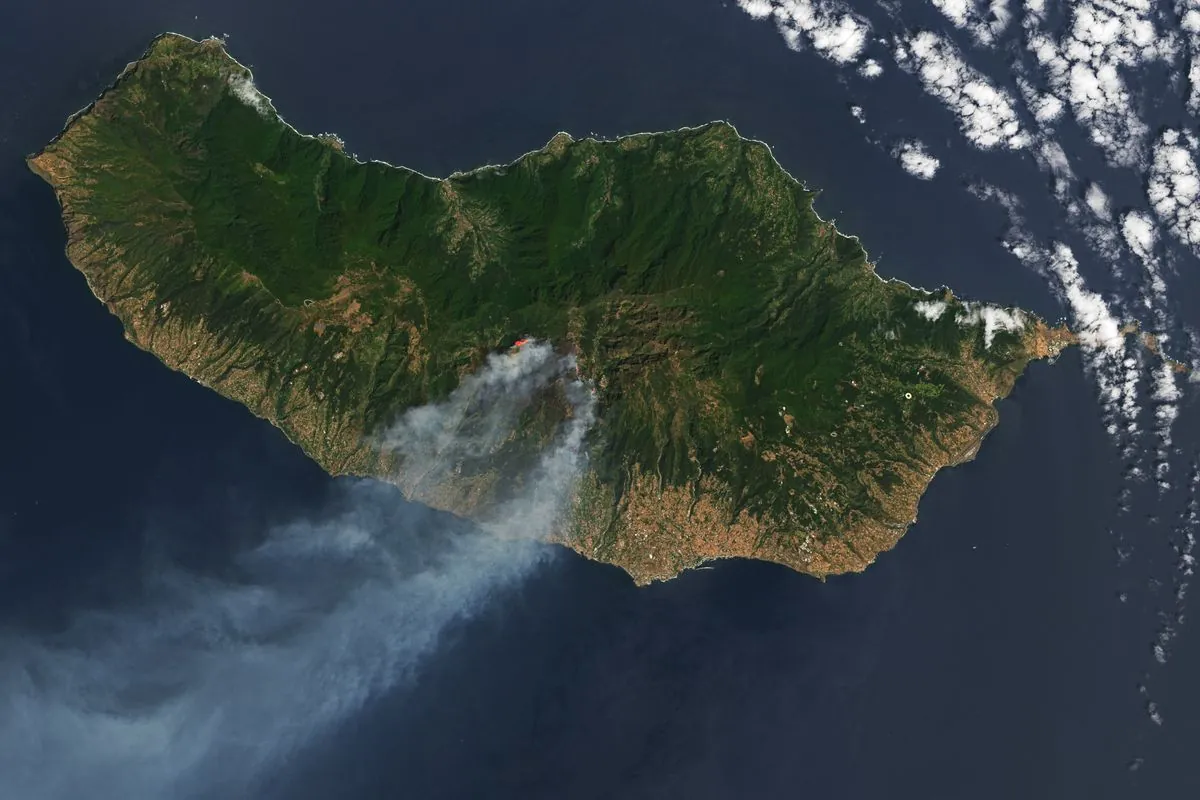The European Union has dispatched two water bombing aircraft from Spain to assist in combating a persistent wildfire on the Portuguese island of Madeira. This action comes in response to the ongoing blaze that has been affecting the region for eight days.
The fire, which ignited on August 14, 2024, has consumed approximately 5,000 hectares of vegetation. The affected areas are primarily located in mountainous regions characterized by steep inclines and limited accessibility. These challenging conditions have complicated firefighting efforts.
Portugal activated the EU civil protection mechanism RescEU to request assistance. In response, EU authorities provided two Canadair planes and expressed readiness to deploy additional resources if required.
Miguel Albuquerque, the regional government chief, provided details on the deployment of these aircraft. He stated, "These planes, which dump 6,000 litres of water, will be only used to tame the fire in the central mountain range. They cannot be utilised in urban or agricultural areas."
Current firefighting operations involve ground crews supported by multiple vehicles and a helicopter. These teams are focusing their efforts on two main fronts: the central mountain range and Ponta do Sol on the southern coast. Both areas are situated at high elevations and are not in close proximity to residential zones.
Madeira, an autonomous region of Portugal with a population of approximately 250,000, has been on high alert for elevated temperatures and increased wildfire risk for several days. This situation highlights the island's vulnerability to climate-related challenges.
"Rising global temperatures due to climate change have led to more frequent wildfires, from Southern and Eastern Europe to North America and parts of Asia."
It's worth noting that Madeira, discovered by Portuguese sailors in 1419, is renowned for its unique characteristics. The island boasts the Laurisilva of Madeira, an ancient laurel forest recognized as a UNESCO World Heritage Site. This protected area underscores the ecological importance of preserving Madeira's natural habitats.
The island's highest peak, Pico Ruivo, stands at 1,862 meters above sea level, contributing to the challenging terrain faced by firefighters. Madeira's subtropical climate typically offers mild temperatures year-round, but recent weather patterns have increased fire risks.
Madeira's rich cultural heritage includes traditional stilt houses called "palheiros" and the famous Madeira wine, produced since the 15th century. The island is also known for its extensive levada system, a network of irrigation channels dating back to the 16th century, which plays a crucial role in water management.
As firefighting efforts continue, the deployment of EU resources demonstrates the importance of international cooperation in addressing environmental emergencies. The situation in Madeira serves as a reminder of the growing impact of climate change on vulnerable ecosystems worldwide.
